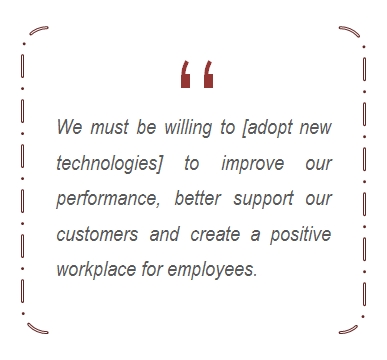Behind the wheel: The logistics of good talent
- HRM Asia Newsroom

|
The logistics industry is for many people a player that moves ‘behind the scenes’, ensuring that the world’s essential goods are delivered into the hands of the expectant consumer – both safely, and on-time.
Today, the industry is changing rapidly and requires planning and investment to attract top talent who can drive the innovations needed to create a faster, smarter and safer supply chain that meets the demands of our growing world.
Investing in a generation of logistics experts
With 24% of Singapore’s workforce expected to face a career change by 2030, it is a huge opportunity for logistics employers to consider investing in programs that encourage experienced professionals from other industries to forge a path in logistics.
Mid-career workers can bring invaluable insight from their previous sectors, such as healthcare or retail, into logistics, and provide an insider’s opinion on how a company can meet current sector demands.
A skilled healthcare or retail manager, for instance, would make an excellent transition to a logistics firm that’s looking to add value or build a solutions-based team for their healthcare and retail clients – since they can better anticipate user needs and manage priorities more effectively.
Similarly, engineers or statisticians have a critical role for logistics operations, as the industry looks to drive operating efficiencies, and increasingly turns to big data and analytics to understand performance and identify opportunities.
Investing in the “doers”
Smart, hard-working people are also essential to strong operations. Ensuring the safety of employees in logistics is, beyond an ethical obligation, crucial to attracting people into this field.
A major industry change in Singapore sees truck drivers receiving a fixed salary instead of the conventional per-trip remuneration.
While increasing labour costs, this is more than outweighed by the reduced pressure on drivers to complete extra trips as they will not have to rush their assignments which promotes safe driving.
In addition, drivers can benefit from a more predictable income stream compared to per-trip incentivisation.
These changes will create better work conditions, which in turn will help much needed attract heavy vehicle drivers to the industry.
Investing in training is also needed to support workers to learn safe working practices. Many multinational companies set that standard.
Certified management trainers teach these firms industry-leading courses on a regular basis, and workers are required to complete tutorials and practical lessons before going into real-life operation.
Many logistics companies have training centres which provide drivers and their management with experiential training through virtual programs which use a mixture of 3-D computer simulations, webcast learning modules, and traditional classroom instruction to inculcate hands-on safety, delivery, and customer service experience in a controlled environment.
 Future-proofing talent against disruption
Future-proofing talent against disruption
With the advancement of technology and its pervasiveness in corporate and private lives, logistics companies must invest in and harness new technology that will improve safety, productivity and efficiency.
In the US, research and trials provide logistics workers with robotic exoskeletons to help them lift bulky items within stores more efficiently. The suit is intended to help them alleviate some of the strain on their muscles and joints as they pick up and move heavy and bulky items. Workers can fulfill more orders in the same number of hours, and it supplements the world’s ageing workforce by opening up new opportunities for participation in employment.
The same conscientiousness towards safety through technology can also apply to warehouses. A high-rise automated storage retrieval system not only maximises real estate use, but it employs some automation to reduce exposure to falling inventory, while workers and supervisors can be upskilled to operate these machines from a safer perspective on the ground.
As is true for all industries, we must adapt to stay ahead. We must be willing to drive the development of new technologies and adopt these advancements to improve our performance, better support our customers and create a positive workplace for employees.
Driving good logistics forward
With the supply and demand dynamics of global trade changing rapidly, and the huge changes in technology available, the time is right to relook at and rethink the way we attract people to the logistics industry.
As an industry we must work closely with government, universities and other companies to find new ways to attract new talent to logistics to ensure the world continues to enjoy an efficient and reliable supply chain.
Michael Byrne is the Managing Director of Toll Group, a global logistics network across 1,200 locations in more than 50 countries. Toll Group has 43,000 employees working across transport and logistics solutions covering road, air, sea and rail.







